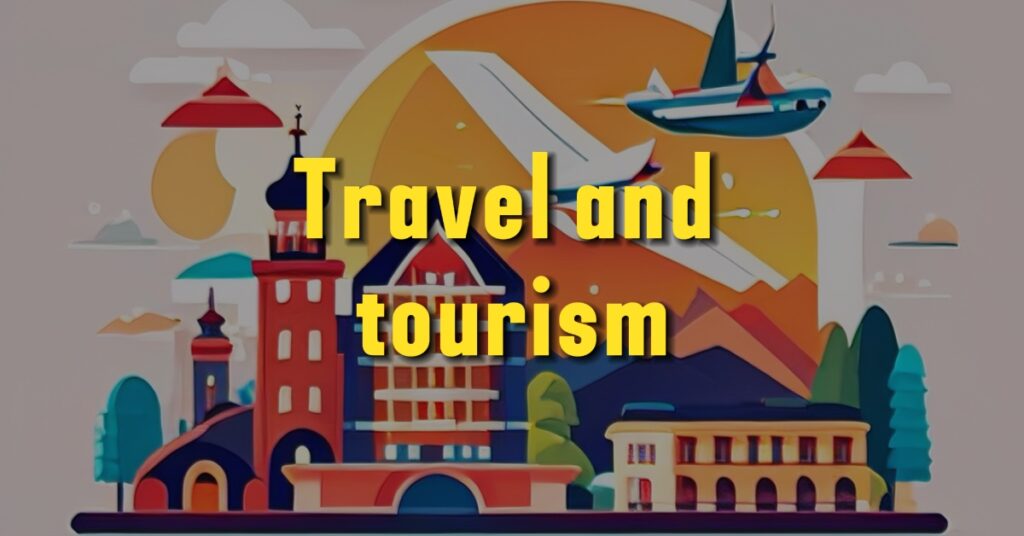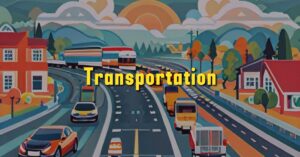This vocabulary list is for reference only. Your Lexical Resource scores are calculated based on the overall level of vocabulary used in your writing and speaking answers. To improve your Lexical Resource scores, it is necessary that you improve your overall level of vocabulary.
However, skillfully incorporating these words in your writing and speaking answers together with a good vocabulary level will increase the chance of enhanced Lexical Recourse scores.
Vocabulary list
1. Cultural Exchange through Tourism
| Word/Phrase | Type | Meaning | Example |
|---|---|---|---|
| Cultural immersion | Noun phrase | Deep involvement in the customs and lifestyle of a foreign culture | Cultural immersion allows tourists to gain a deeper understanding of local traditions. |
| Heritage sites | Noun phrase | Places with historical, cultural, or natural significance | Visiting heritage sites is an integral part of cultural tourism. |
| Local cuisine | Noun phrase | Traditional food of a particular region | Sampling local cuisine is a highlight of cultural exchange. |
| Sightseeing | Noun/Verb | Visiting places of interest | Tourists enjoy sightseeing to explore the cultural richness of a destination. |
| Language barriers | Noun phrase | Challenges in communication due to different languages | Overcoming language barriers enhances cultural exchange experiences. |
| Guided tours | Noun phrase | Organized tours led by knowledgeable guides | Guided tours provide valuable insights into local culture and history. |
| Folklore | Noun | Traditional beliefs, stories, and customs | Folklore plays a significant role in preserving cultural heritage. |
| Handicrafts | Noun | Handmade products reflecting local culture | Purchasing handicrafts supports local artisans and promotes cultural exchange. |
| Cultural festivals | Noun phrase | Celebrations showcasing local traditions | Cultural festivals offer tourists a glimpse into the community’s cultural identity. |
| Homestays | Noun | Accommodation provided by local residents | Homestays provide authentic cultural experiences for travelers. |
| Cultural sensitivity | Noun phrase | Awareness and respect for cultural differences | Cultural sensitivity enhances interactions during cultural exchange. |
| Interactions with locals | Noun phrase | Engagement with residents of a destination | Meaningful interactions with locals enrich the cultural exchange experience. |
| Cultural appreciation | Noun phrase | Recognition and respect for diverse cultures | Cultural appreciation fosters understanding and acceptance among travelers. |
| Traditional ceremonies | Noun phrase | Rituals and practices passed down through generations | Witnessing traditional ceremonies offers insight into local customs and beliefs. |
| Historical landmarks | Noun phrase | Sites of significant historical importance | Exploring historical landmarks provides insights into a destination’s past. |
| Cultural assimilation | Noun phrase | Adoption of cultural practices and norms | Cultural assimilation occurs through exposure to different cultures during travel. |
2. Ecotourism and Its Benefits
| Word/Phrase | Type | Meaning | Example |
|---|---|---|---|
| Conservation efforts | Noun phrase | Actions aimed at preserving natural resources | Ecotourism supports conservation efforts in fragile ecosystems. |
| Environmental impact | Noun phrase | Effects of human activity on the environment | Responsible ecotourism minimizes environmental impact. |
| Sustainable tourism | Noun phrase | Tourism that conserves natural environments, supports local communities and minimizes negative impacts | Sustainable tourism promotes environmental and cultural conservation. |
| Wildlife conservation | Noun phrase | Protection of wildlife and their habitats | Ecotourism contributes to wildlife conservation efforts. |
| Nature reserves | Noun phrase | Protected areas for preserving natural habitats | Nature reserves provide sanctuary for diverse plant and animal species. |
| Responsible travel | Noun phrase | Mindful and ethical travel practices | Responsible travel minimizes negative impacts on local environments and cultures. |
| Carbon footprint reduction | Noun phrase | Efforts to decrease carbon emissions | Ecotourism initiatives focus on carbon footprint reduction. |
| Eco-friendly accommodations | Noun phrase | Lodging options with minimal environmental impact | Eco-friendly accommodations prioritize sustainability and conservation. |
| Conservation awareness | Noun phrase | Knowledge and understanding of conservation issues | Ecotourism fosters conservation awareness among travelers. |
| Sustainable practices | Noun phrase | Actions that support ecological and social sustainability | Adopting sustainable practices is key to promoting ecotourism. |
3. The Impact of Tourism on Local Communities
| Word/Phrase | Type | Meaning | Example |
|---|---|---|---|
| Economic opportunities | Noun phrase | Possibilities for financial gain or advancement | Tourism can create economic opportunities for local communities. |
| Cultural preservation | Noun phrase | Protection of cultural heritage and traditions | Tourism initiatives should prioritize cultural preservation. |
| Infrastructure development | Noun phrase | Construction of facilities and services to support tourism | Proper infrastructure development can enhance the tourist experience. |
| Socioeconomic impact | Noun phrase | Effects of tourism on the social and economic aspects of a community | Tourism can have both positive and negative socioeconomic impacts on local communities. |
| Community empowerment | Noun phrase | Strengthening of community resources and capacity | Tourism can empower local communities to take charge of their development. |
| Tourism revenue | Noun phrase | Income generated from tourist activities | Tourism revenue contributes to the economic growth of local communities. |
| Employment opportunities | Noun phrase | Jobs created as a result of tourism activities | Tourism provides employment opportunities for locals in various sectors. |
| Sustainable development | Noun phrase | Development that meets the needs of the present without compromising the ability of future generations to meet their own needs | Sustainable development ensures the long-term well-being of local communities. |
| Community engagement | Noun phrase | Involvement and participation of community members | Community engagement is essential for sustainable tourism development. |
| Cultural exchange programs | Noun phrase | Initiatives promoting cross-cultural interaction | Cultural exchange programs enrich the tourist experience and foster mutual understanding. |
| Tourism infrastructure | Noun phrase | Facilities and amenities supporting tourism | Investments in tourism infrastructure enhance the attractiveness of destinations. |
| Community-based tourism | Noun phrase | Tourism initiatives managed and operated by local communities | Community-based tourism empowers locals to showcase their culture and heritage. |
| Social cohesion | Noun phrase | Sense of unity and belonging within a community | Tourism can foster social cohesion by bringing people together. |
| Environmental degradation | Noun phrase | Decline in the quality of the environment due to human activities | Uncontrolled tourism can lead to environmental degradation in sensitive ecosystems. |
| Overtourism management | Noun phrase | Strategies to address negative impacts of excessive tourism | Overtourism management ensures sustainable tourism practices in popular destinations. |
Idioms for Speaking
These are idioms and phrases that use topic-related figures of speech. They can also be used in different contexts.
| Idiom | Definition | Example |
|---|---|---|
| A stone’s throw away | A very short distance; nearby. | “Our hotel was just a stone’s throw away from the beach, making it convenient for us to go swimming.” |
| Catch the travel bug | To develop a strong desire to travel and explore new places. | “After her first trip abroad, she caught the travel bug and now plans to visit different countries.” |
| Off-the-beaten-path | A location or route that is not well-known or frequently traveled. | “We prefer to explore off the beaten path destinations to experience unique cultures.” |
| Pack one’s bags | To prepare for a trip by putting belongings into luggage. | “We’re excited to pack our bags and head to the mountains for a weekend getaway.” |
| Hit the road | To begin a journey or set out on a trip, especially by car. | “After breakfast, we hit the road to start our cross-country road trip.” |
| On the horizon | Likely to happen soon or be encountered in the future. | “With summer approaching, a beach vacation is on the horizon for many travelers.” |
| Passport to adventure | The means to embark on exciting and diverse experiences. | “A passport is not just a document; it’s a passport to adventure and exploration.” |
| Put oneself on the map | To become well-known or gain recognition, especially in a particular area. | “By showcasing local art, the gallery aims to put the town on the map as an artistic hub.” |
| Road less traveled | A less common or conventional path or route. | “Taking the road less traveled often leads to discovering hidden gems and unique experiences.” |
| Take a rain check | To decline an invitation or offer with the intention of accepting it later. | “Due to some unforeseen circumstances, I have to take a rain check on this trip.” |
| Travel on a shoestring | To travel with a very limited budget. | “During their gap year, they decided to travel on a shoestring and explore budget-friendly destinations.” |
| Up in the air | Uncertain or undecided; plans that have not been finalized. | “Our vacation plans are still up in the air; we haven’t decided on the destination yet.” |
| Go the extra mile | To make a special effort or go above and beyond what is required. | “The hotel staff always goes the extra mile to ensure guests have a memorable stay.” |
| Get away from it all | To take a break from one’s routine and escape from stress or problems. | “We booked a secluded cabin in the mountains to get away from it all and enjoy some tranquility.” |
| Jet-set lifestyle | A glamorous and luxurious lifestyle involving frequent travel. | “Some celebrities lead a jet set lifestyle, hopping between cities for work and leisure.” |
| Mile a minute | Extremely fast or quickly changing. | “The pace of the city was mile a minute, and we had to adapt quickly to keep up.” |
| Off the map | A location that is not well-known or recognized. | “The small village was off the map for most tourists, providing a peaceful and authentic experience.” |
| Set sail | To begin a journey, especially by boat. | “As the sun set, we set sail on a cruise along the coastline.” |
| Take the scenic route | To choose a path that offers beautiful views and interesting sights. | “Rather than taking the highway, we decided to take the scenic route through the mountains.” |
| See the sights | To visit and explore tourist attractions. | “When visiting a new city, it’s important to take the time to see the sights and experience the culture.” |
Cultural Exchange through Tourism
Cultural immersion
Type: Noun phrase
Meaning: Deep involvement in the customs and lifestyle of a foreign culture
Example: Cultural immersion allows tourists to gain a deeper understanding of local traditions.
Heritage sites
Type: Noun phrase
Meaning: Places with historical, cultural, or natural significance
Example: Visiting heritage sites is an integral part of cultural tourism.
Local cuisine
Type: Noun phrase
Meaning: Traditional food of a particular region
Example: Sampling local cuisine is a highlight of cultural exchange.
Sightseeing
Type: Noun/Verb
Meaning: Visiting places of interest
Example: Tourists enjoy sightseeing to explore the cultural richness of a destination.
Language barriers
Type: Noun phrase
Meaning: Challenges in communication due to different languages
Example: Overcoming language barriers enhances cultural exchange experiences.
Guided tours
Type: Noun phrase
Meaning: Organized tours led by knowledgeable guides
Example: Guided tours provide valuable insights into local culture and history.
Folklore
Type: Noun
Meaning: Traditional beliefs, stories, and customs
Example: Folklore plays a significant role in preserving cultural heritage.
Handicrafts
Type: Noun
Meaning: Handmade products reflecting local culture
Example: Purchasing handicrafts supports local artisans and promotes cultural exchange.
Cultural festivals
Type: Noun phrase
Meaning: Celebrations showcasing local traditions
Example: Cultural festivals offer tourists a glimpse into the community’s cultural identity.
Homestays
Type: Noun
Meaning: Accommodation provided by local residents
Example: Homestays provide authentic cultural experiences for travelers.
Cultural sensitivity
Type: Noun phrase
Meaning: Awareness and respect for cultural differences
Example: Cultural sensitivity enhances interactions during cultural exchange.
Interactions with locals
Type: Noun phrase
Meaning: Engagement with residents of a destination
Example: Meaningful interactions with locals enrich the cultural exchange experience.
Cultural appreciation
Type: Noun phrase
Meaning: Recognition and respect for diverse cultures
Example: Cultural appreciation fosters understanding and acceptance among travelers.
Traditional ceremonies
Type: Noun phrase
Meaning: Rituals and practices passed down through generations
Example: Witnessing traditional ceremonies offers insight into local customs and beliefs.
Historical landmarks
Type: Noun phrase
Meaning: Sites of significant historical importance
Example: Exploring historical landmarks provides insights into a destination’s past.
Cultural assimilation
Type: Noun phrase
Meaning: Adoption of cultural practices and norms
Example: Cultural assimilation occurs through exposure to different cultures during travel.
Ecotourism and Its Benefits
Conservation efforts
Type: Noun phrase
Meaning: Actions aimed at preserving natural resources
Example: Ecotourism supports conservation efforts in fragile ecosystems.
Environmental impact
Type: Noun phrase
Meaning: Effects of human activity on the environment
Example: Responsible ecotourism minimizes environmental impact.
Sustainable tourism
Type: Noun phrase
Meaning: Tourism that conserves natural environments, supports local communities and minimizes negative impacts
Example: Sustainable tourism promotes environmental and cultural conservation.
Wildlife conservation
Type: Noun phrase
Meaning: Protection of wildlife and their habitats
Example: Ecotourism contributes to wildlife conservation efforts.
Nature reserves
Type: Noun phrase
Meaning: Protected areas for preserving natural habitats
Example: Nature reserves provide sanctuary for diverse plant and animal species.
Responsible travel
Type: Noun phrase
Meaning: Mindful and ethical travel practices
Example: Responsible travel minimizes negative impacts on local environments and cultures.
Carbon footprint reduction
Type: Noun phrase
Meaning: Efforts to decrease carbon emissions
Example: Ecotourism initiatives focus on carbon footprint reduction.
Eco-friendly accommodations
Type: Noun phrase
Meaning: Lodging options with minimal environmental impact
Example: Eco-friendly accommodations prioritize sustainability and conservation.
Conservation awareness
Type: Noun phrase
Meaning: Knowledge and understanding of conservation issues
Example: Ecotourism fosters conservation awareness among travelers.
Sustainable practices
Type: Noun phrase
Meaning: Actions that support ecological and social sustainability
Example: Adopting sustainable practices is key to promoting ecotourism.
The Impact of Tourism on Local Communities
Economic opportunities
Type: Noun phrase
Meaning: Possibilities for financial gain or advancement
Example: Tourism can create economic opportunities for local communities.
Cultural preservation
Type: Noun phrase
Meaning: Protection of cultural heritage and traditions
Example: Tourism initiatives should prioritize cultural preservation.
Infrastructure development
Type: Noun phrase
Meaning: Construction of facilities and services to support tourism
Example: Proper infrastructure development can enhance the tourist experience.
Socioeconomic impact
Type: Noun phrase
Meaning: Effects of tourism on the social and economic aspects of a community
Example: Tourism can have both positive and negative socioeconomic impacts on local communities.
Community empowerment
Type: Noun phrase
Meaning: Strengthening of community resources and capacity
Example: Tourism can empower local communities to take charge of their development.
Tourism revenue
Type: Noun phrase
Meaning: Income generated from tourist activities
Example: Tourism revenue contributes to the economic growth of local communities.
Employment opportunities
Type: Noun phrase
Meaning: Jobs created as a result of tourism activities
Example: Tourism provides employment opportunities for locals in various sectors.
Sustainable development
Type: Noun phrase
Meaning: Development that meets the needs of the present without compromising the ability of future generations to meet their own needs
Example: Sustainable development ensures the long-term well-being of local communities.
Community engagement
Type: Noun phrase
Meaning: Involvement and participation of community members
Example: Community engagement is essential for sustainable tourism development.
Cultural exchange programs
Type: Noun phrase
Meaning: Initiatives promoting cross-cultural interaction
Example: Cultural exchange programs enrich the tourist experience and foster mutual understanding.
Tourism infrastructure
Type: Noun phrase
Meaning: Facilities and amenities supporting tourism
Example: Investments in tourism infrastructure enhance the attractiveness of destinations.
Community-based tourism
Type: Noun phrase
Meaning: Tourism initiatives managed and operated by local communities
Example: Community-based tourism empowers locals to showcase their culture and heritage.
Social cohesion
Type: Noun phrase
Meaning: Sense of unity and belonging within a community
Example: Tourism can foster social cohesion by bringing people together.
Environmental degradation
Type: Noun phrase
Meaning: Decline in the quality of the environment due to human activities
Example: Uncontrolled tourism can lead to environmental degradation in sensitive ecosystems.
Over-tourism management
Type: Noun phrase
Meaning: Strategies to address negative impacts of excessive tourism
Example: Overtourism management ensures sustainable tourism practices in popular destinations.
Idioms for Speaking
A stone’s throw away
Definition: A very short distance; nearby.
Example: “Our hotel was just a stone’s throw away from the beach, making it convenient for us to go swimming.”
Catch the travel bug
Definition: To develop a strong desire to travel and explore new places.
Example: “After her first trip abroad, she caught the travel bug and now plans to visit different countries.”
Off-the-beaten-path
Definition: A location or route that is not well-known or frequently traveled.
Example: “We prefer to explore off the beaten path destinations to experience unique cultures.”
Pack one’s bags
Definition: To prepare for a trip by putting belongings into luggage.
Example: “We’re excited to pack our bags and head to the mountains for a weekend getaway.”
Hit the road
Definition: To begin a journey or set out on a trip, especially by car.
Example: “After breakfast, we hit the road to start our cross-country road trip.”
On the horizon
Definition: Likely to happen soon or be encountered in the future.
Example: “With summer approaching, a beach vacation is on the horizon for many travelers.”
Passport to adventure
Definition: The means to embark on exciting and diverse experiences.
Example: “A passport is not just a document; it’s a passport to adventure and exploration.”
Put oneself on the map
Definition: To become well-known or gain recognition, especially in a particular area.
Example: “By showcasing local art, the gallery aims to put the town on the map as an artistic hub.”
Road less traveled
Definition: A less common or conventional path or route.
Example: “Taking the road less traveled often leads to discovering hidden gems and unique experiences.”
Take a rain check
Definition: To decline an invitation or offer with the intention of accepting it later.
Example: “Due to some unforeseen circumstances, I have to take a rain check on this trip.”
Travel on a shoestring
Definition: To travel with a very limited budget.
Example: “During their gap year, they decided to travel on a shoestring and explore budget-friendly destinations.”
Up in the air
Definition: Uncertain or undecided; plans that have not been finalized.
Example: “Our vacation plans are still up in the air; we haven’t decided on the destination yet.”
Go the extra mile
Definition: To make a special effort or go above and beyond what is required.
Example: “The hotel staff always goes the extra mile to ensure guests have a memorable stay.”
Get away from it all
Definition: To take a break from one’s routine and escape from stress or problems.
Example: “We booked a secluded cabin in the mountains to get away from it all and enjoy some tranquility.”
Jet-set lifestyle
Definition: A glamorous and luxurious lifestyle involving frequent travel.
Example: “Some celebrities lead a jet set lifestyle, hopping between cities for work and leisure.”
Mile a minute
Definition: Extremely fast or quickly changing.
Example: “The pace of the city was mile a minute, and we had to adapt quickly to keep up.”
Off the map
Definition: A location that is not well-known or recognized.
Example: “The small village was off the map for most tourists, providing a peaceful and authentic experience.”
Set sail
Definition: To begin a journey, especially by boat.
Example: “As the sun set, we set sail on a cruise along the coastline.”
Take the scenic route
Definition: To choose a path that offers beautiful views and interesting sights.
Example: “Rather than taking the highway, we decided to take the scenic route through the mountains.”
See the sights
Definition: To visit and explore tourist attractions.
Example: “When visiting a new city, it’s important to take the time to see the sights and experience the culture.”











